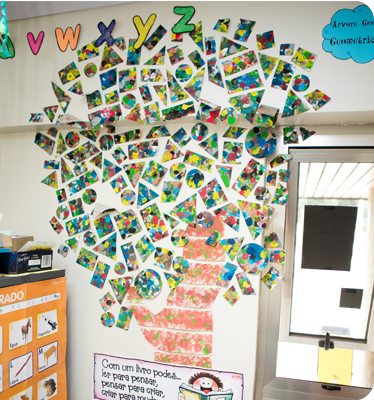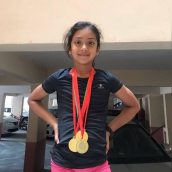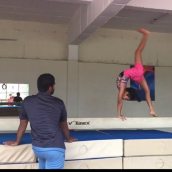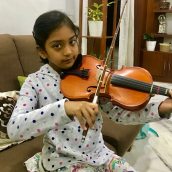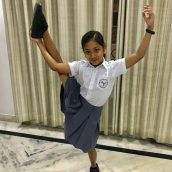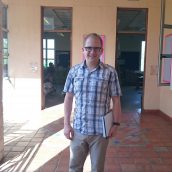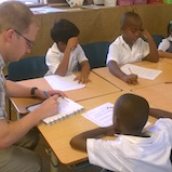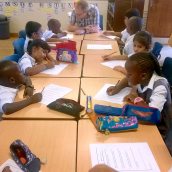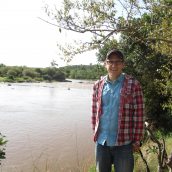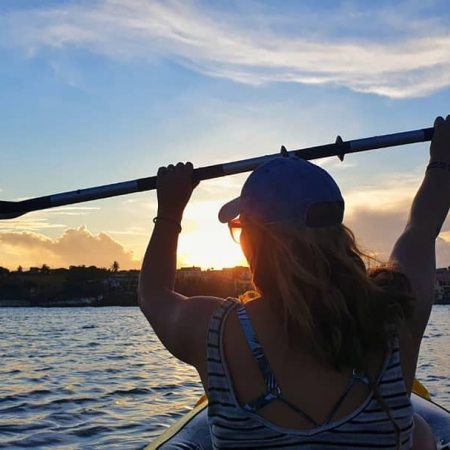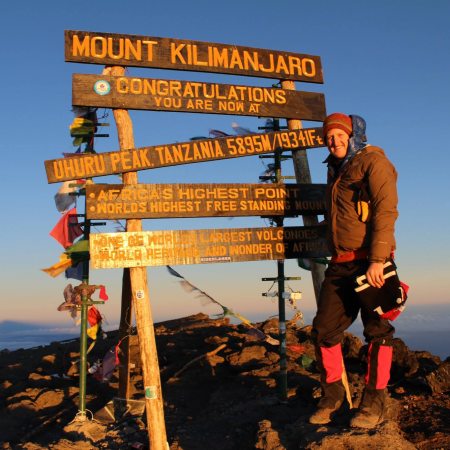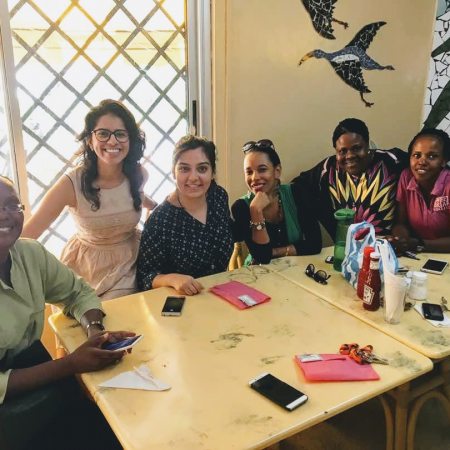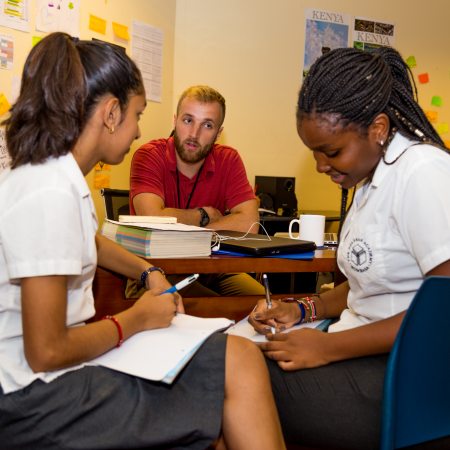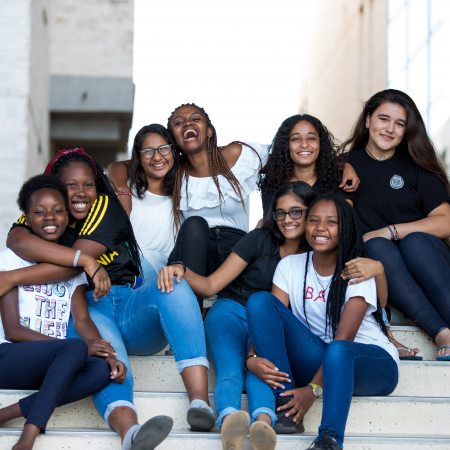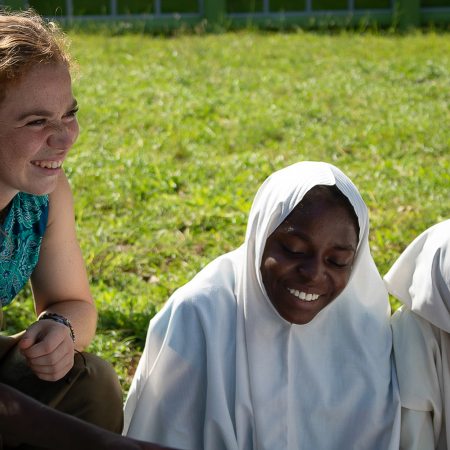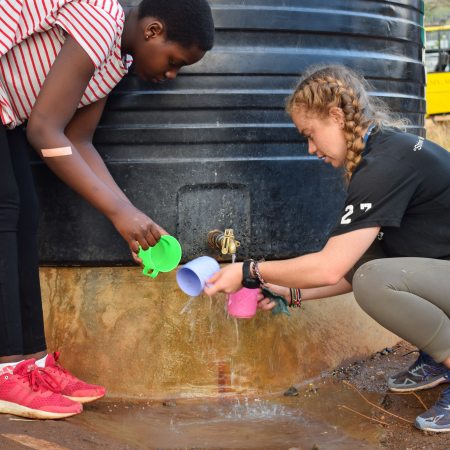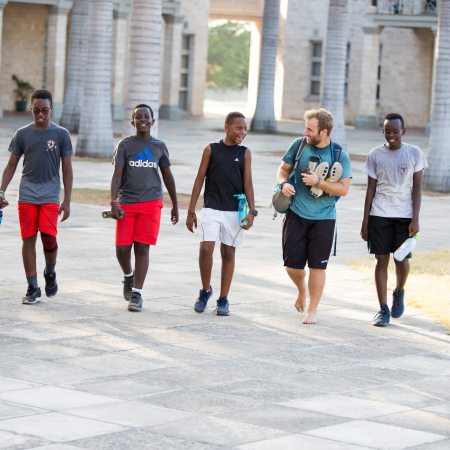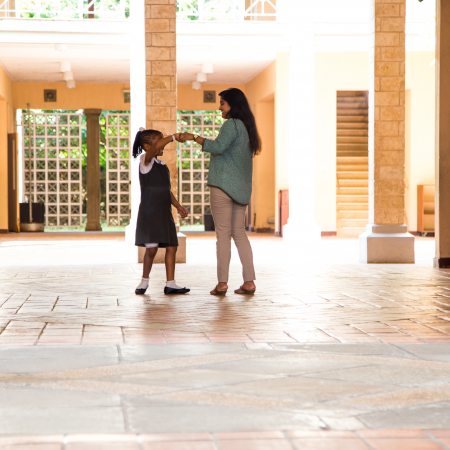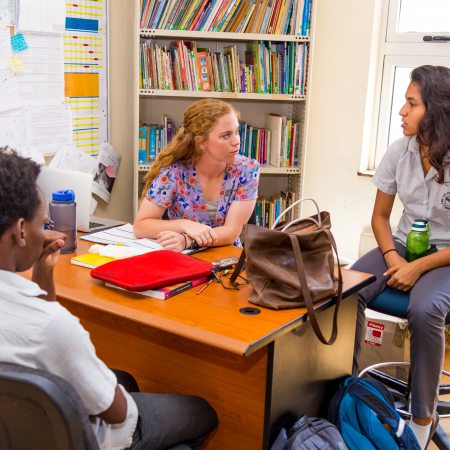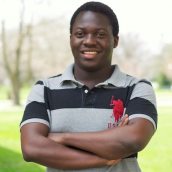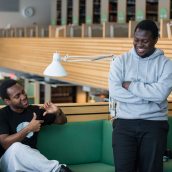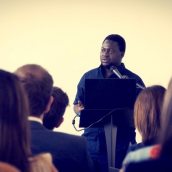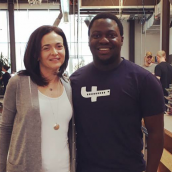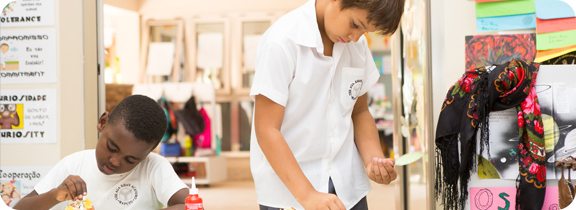
Aga Khan Curricular Strands
The Aga Khan Curricular Strands (AK Strands) are a unique part of the programme offered by the Aga Khan Academies. The AK Strands are areas of learning aimed specifically at developing knowledge, skills and attitudes required by future leaders.
Our goal at the Academies is to develop young people who have strong local roots and are also globally minded. They should be able to become leaders in whichever fields they choose.
To help achieve this goal, we have identified five areas of learning, the Aga Khan Curricular Strands, that we believe are important for our students. These are:
- Ethics
- Pluralism
- Cultures (with an emphasis on Muslim civilisations)
- Governance and Civil Society
- Economics for Development.
Implementing the AK Strands
The Aga Khan Curricular Strands are not taught as independent subjects. Instead, we weave them into the existing subject areas of the academic curriculum. They help inform the selection of content and themes for study. The AK Strands also provide direction for school life outside the classroom in areas such as policy making, recruitment, student life and residential life.
Two of the AK Strands, Ethics and Pluralism, help students develop values and dispositions required by ethical leaders. Our students learn about these areas in theory and are also encouraged to practice what they learn in their everyday lives.
Through the other three AK Strands, our students learn about ideas that are important to the functioning of societies. In particular, they learn about how these ideas impact people’s lives in countries of the developing world. The knowledge they gain helps them understand key issues from both local and international perspectives.
The AK Strands in practice
The Aga Khan Curricular Strands were developed at the first Aga Khan Academy in Mombasa and are designed to be used in different cultural contexts. Teachers from the Aga Khan Academy Maputo help tailor the AK Strands for the local environment in Mozambique.
Through the Aga Khan Curricular Strands, our students develop attitudes and values that will help them throughout their lives. They also gain knowledge and understanding that will allow them to contribute positively to their societies in the future.
For more information on the educational programme offered at the Aga Khan Academy Maputo, please visit the Academic Programme page.
Ananya Raju - making waves in the junior gymnastics circuit
Apart from gymnastics, Ananya enjoys playing basketball, swimming, horse riding and playing the violin. She is an ardent animal lover and spends her free time at the Blue Cross animal rescue centre with her father. Whenever she sees street dogs, she feeds them and plays with them, and one day dreams of building an animal orphanage for strays. Hand in hand with this is her predilection for environmental sustainability. She actively avoids using things that are harmful to the environment and talks to people about not using plastic, not burning firecrackers and segregating garbage.
Ananya, who joined the Academy in August 2018, is an inspirational child with a profoundly promising future. AKA Hyderabad is proud to have her and hopes to always be a part of her successes and joys.Sharing practice across oceans
Andrew Jones is a teacher from Ontario, Canada who has spent the past year at the Aga Khan Academy Mombasa, working with the Junior School as part of a teacher secondment partnership between the Aga Khan Academies and the Province of Ontario.
On first arriving at the Academy Andrew said, “I [am] expecting an enriching experience that will allow me to learn about another culture by being immersed in it. I expect to grow as an educator because different settings, both culturally and through the [International Baccalaureate] programme, will allow me to expand my skill set as to how best practices support student learning.” One year later, he reflects on his experience.
Almost two years ago now, I was reading the book, Everyone Can Learn to Ride a Bicycle, by Chris Raschka to my new grade one class in Kitchener, Ontario, Canada. This book helps me encourage my students at the start of the year to continue developing resiliency through adopting a growth mindset by trying new things, taking risks and reflecting on both successes and mistakes. Little did I know, I was not just teaching my students this skill, but I was also going to follow this advice myself.
Ever since I began teaching almost 10 years ago, many changes in my job assignment have sparked a passion for professional learning and development in my teaching practice. Over this year, I have immensely enjoyed this new job working for the Ministry of Education in Ontario on an educational partnership between our government and the Aga Khan Academy Mombasa. I have had the opportunity to grow and learn as both an educator and an individual through my interactions at the Academy and through daily life in Mombasa.
Working at the Aga Khan Academy Mombasa has been an immense opportunity of both professional and personal learning that I am thankful for. I ask myself this very question, “What best teaching practices am I learning about that I should share with Ontario teachers?”
Here are three that I have learned more about since being here.
Building Confident Leaders – Students build their confidence and exude enthusiasm as they try new things and take risks during their participation in a variety of classroom activities, sports galas, enrichment opportunities and Friday assemblies. Students are confident, have strong leadership skills and advocate for equity. Confidence stands out as a defining characteristic of the learners present here in the Junior School.
Promoting Pluralistic Thinking – The Junior School’s demographic is vibrant and diverse, reflective of the Mombasa community’s cultures, religions and backgrounds. Activities at the school, such as the Arts Week performance, continually emphasise appreciation and understanding toward different views and beliefs and encourage students to think pluralistically as they work together.
Dual Language Practices – I have been learning Kiswahili “pole pole” this past year, and I am quite experienced in giving directions to tuk tuks and boda bodas. As I learn a new language, it helps me think about the world in different ways and makes me more pluralistic in my thinking. Likewise, students at the Academy develop academic competency and fluency in both the national language of Kenya, Kiswahili, and the official language of Kenya, English. Additionally, learning similar concepts in two languages allows students to develop pluralistic view points as languages sometimes look at similar ideas in different ways.
I am thankful to explore Kenya’s beauty and diversity, so far from Mount Kenya to the Masai Mara to Mombasa. I continue to grow and to learn and am thankful to the kind and generous Mombasa community that has made my transition to working at the Academy warm and welcoming. I feel very privileged to be working with such a dedicated and caring staff and with phenomenal students.
By Andrew Jones
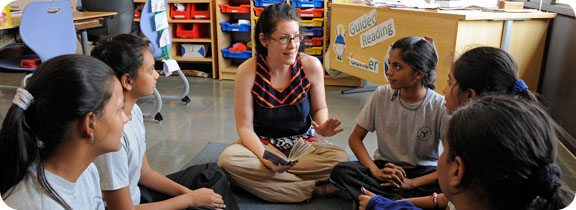
Employment Opportunities
The Aga Khan Academies is committed to hiring the best educators and support staff from their local communities and from all corners of the globe. The skills and ideas of the educators and staff are central to the student experience and to the Academies’ commitment to excellence.
The Academies provide a unique and exciting work environment for teachers, facilitators, facilities managers and administrators. Educators and support staff are encouraged to innovate continually and are given regular opportunities for professional and personal development.
Through teacher education and local capacity building, the Academies aspire to raise the status of the teaching profession and create conditions for growing numbers of talented people to explore a career in education.
Employment opportunities at the Aga Khan Academies are listed as they are made available on the AKDN Career Centre.
For more information about employment at the Aga Khan Academies or in the Aga Khan Development Network, visit the AKDN Career Centre.
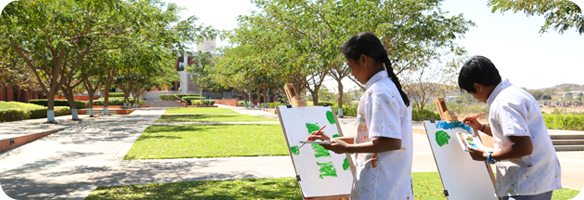
Financial Assistance
Admission to the Academy is competitive and based on student merit, regardless of a family’s ability to pay. The Academy endeavours to meet the demonstrated financial need of each admitted student. Students from all socio-economic backgrounds who satisfy the requirements for entry are encouraged to apply.
Partial to full financial aid is available to accepted students with a demonstrated need. Financial aid awards are reviewed annually and renewed only after reassessment of financial need.
The financial aid form can be downloaded from the Application Forms page. This form must be submitted to the Academy as part of the application package in order to be considered for a bursary.
For further information about admission, scholarships and financial aid please contact the admissions office.
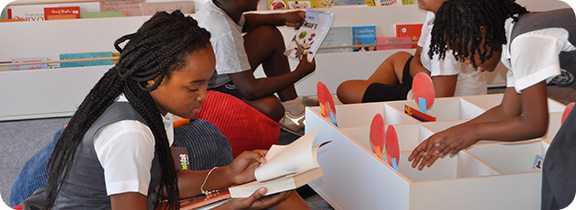
School Uniform
Click here to learn more about the Aga Khan Academy Maputo's school uniform requirements (with pictures/com fotos).
Vendor contact details:
Name of contact: Shaazia Adams
Shop address: 24 de julho nº 724 (between villa das Arabias and Óptica visual-black door entrance)
Phone number: +258 84 969 6962
Email address: customerservice.shaazia@gmail.com
Opened from: Monday to Friday, 8:00 am to 5:00 pm and Saturday, 8:00 am to 1:00 pm
For more information, please get in touch with the Academy's reception desk: (+258) 853 016 339.
Academy Fellows
Hear what some of our former Academy Fellows have to say about their experience and see them in action
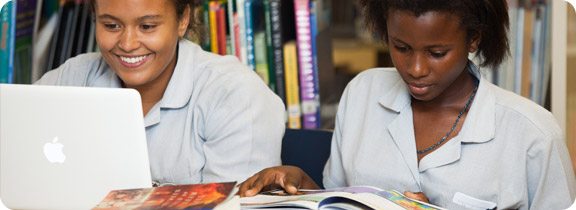
University Counselling Handbook
The Aga Khan Schools University Counselling Handbook has been prepared in order to orient you to the complex and exciting process of university application and selection. The handbook provides definite guidelines and schedules that will help you comprehend the many issues and challenges you will face in your last years of secondary school. It is designed to provide beginning steps and an outline of the application process and curriculum in various countries.
The handbook serves as a road map that will guide you as you embark on the transition from the Academy to university. It will be helpful only to the extent that you take advantage of the information it contains. The book does not replace the help of the University Counselling Office. However, it does provide answers to frequently asked questions, can help you organise your thoughts about university and, in general, can eliminate much confusion if you take the time to read it and incorporate its recommendations into your university planning.
Click here to download a copy of the handbook.
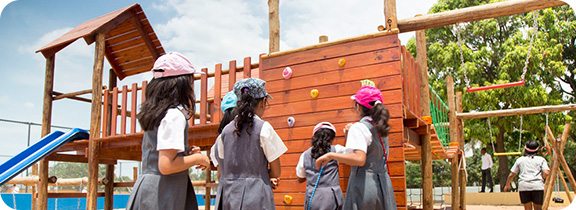
Our Campus
Our Campus
The site was kindly donated by the Mozambican government to house the third in a network integrated Academies, which offer the highest international standard of education to students in countries across East Africa and South Asia.
The Academy’s campus is purpose-built to provide world-class facilities for students and staff. The Junior School, Early Years Centre, Senior School, Science Building and two residential buildings are now complete, and the construction of the Academy and Commons buildings is well underway.
The campus provides an ideal learning environment that includes:
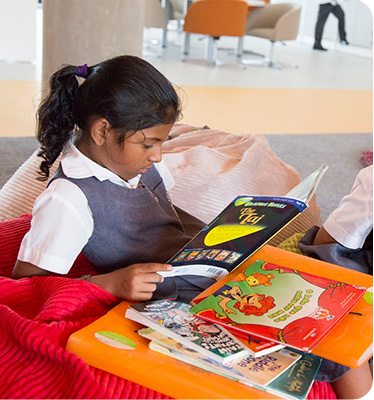 • Classrooms equipped with state-of-the-art technology to enhance collaboration, creativity, and inquiry learning
• Classrooms equipped with state-of-the-art technology to enhance collaboration, creativity, and inquiry learning
• Well-equipped libraries
• Extensive sports facilities
• Spaces for arts, music and performance
Ham Serunjogi: Blazing a path across three continents
Look below for a video of Ham talking about his experience at the Academy.
Swimming from Uganda
Ham Serunjogi, age 23, grew up in Uganda and started swimming competitively at age 6. His parents encouraged his academics and his athletics, and Ham excelled in both. In 2010 he enrolled at the Aga Khan Academy in Mombasa, Kenya.
On his way to Kenya, he competed in the Youth Olympics in Singapore in 2010. At AKA Mombasa, he trained and studied hard, learning leadership and teamwork. He became president of the AKA Student Representative Council. At the Academy he became fascinated by digital communication. In 2011 he conducted a school project back home in Uganda, where he interviewed the IT manager at Cineplex Uganda.
To America
Ham’s drive got the attention of educators. After graduating from the Aga Khan Academy he received a scholarship to study in the United States. He pursued a bachelor’s degree at Grinnell College, where he majored in Economics.
With a fellow Grinnell student, Ham developed an app that allowed users to send short, encrypted voice recordings that would self-destruct after they were played. It was a smart solution that anticipated the rise of privacy concerns in technology. The app could work in places where voicemail systems weren’t common, like Ghana, where his app partner grew up.
The habits cultivated at AKA continued to bear fruit, he says. “The education I gained at the Academy had an emphasis on critical thinking,” Ham explains. That critical ability for problem solving fueled his achievement at Grinnell, along with a conviction that he had something to contribute.
Taking New Ideas to Facebook in Europe
As he prepared to graduate from Grinnell, Ham let himself dream big. He set his sights on the biggest social media giant he could find. “I took an unorthodox approach,” Ham said of his strategy for getting a job. “Instead of applying online, I sent an email directly to Sheryl Sandberg.”
He received responses to his email within hours, urging him to apply online. Soon recruiters were calling to set up interviews. The interviews led to an internship on Facebook’s Global Accounts Team in New York during the summer of 2015, before his final year of study at Grinnell College. There he enjoyed a surprising degree of autonomy to tackle issues that he cared about. In his first weekly one-on-one with his supervisor, she asked him, “What are you most passionate about?” He took that as encouragement and created a new initiative.
Ham is amazed by where life has taken him.
Keeping up Connections and Giving Back
Again and again, Ham has drawn on his experiences from AKA Mombasa, and the bonds among his Academy friends remain strong. Before starting his new job in Ireland, he visited friends and family in Uganda. He still connects often with his AKA Mombasa roommate, Aleem Mawji, now a student at the University of British Columbia. Ham’s friend from the AKA swim team, fellow Ugandan Joshua Tibatemwa, followed his path as a AKA swim team star and student president. Joshua also followed Ham’s example to Grinnell, where he’s now a student. Joshua competed for Uganda at the Rio Olympics last summer.
Ham took time away from settling into Dublin life to watch the Olympics on television, hoping to catch a glimpse of his friend.
Ham has launched into a life of active engagement, creating networks that make people’s lives better. He has seen how such networks make a difference. He shows dedication to paying it forward.
This spotlight is republished courtesy of AKF USA.
